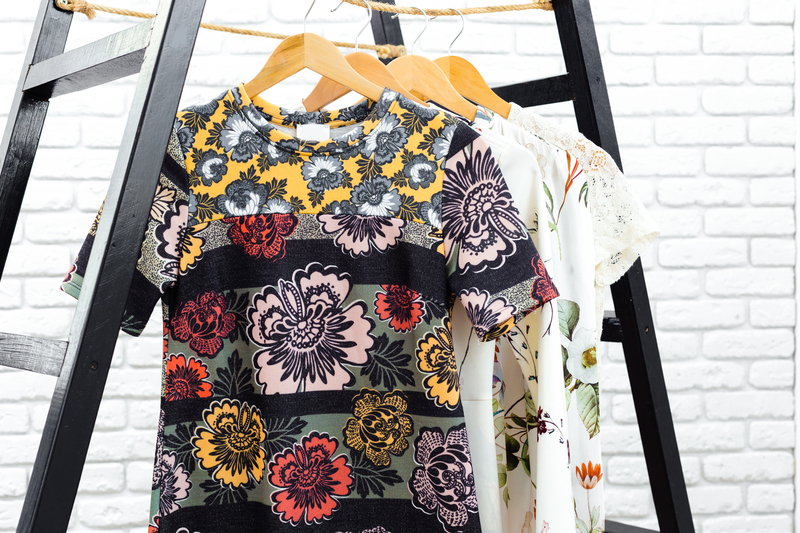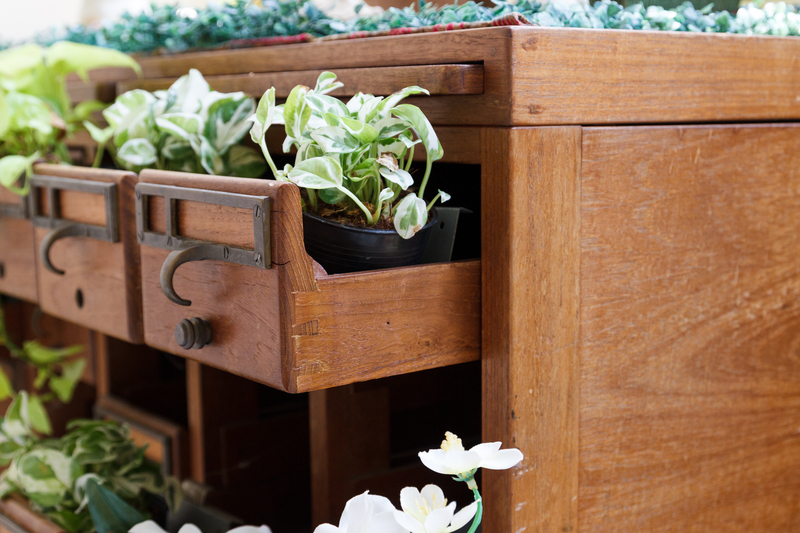Reduce Anxiety by Eliminating Unnecessary Possessions
Anxiety has become a constant companion for many in our fast-paced, consumption-driven society. Problems like stress, overwhelm, and a persistent feeling of unease can often be linked to the clutter around us. In this comprehensive guide, we'll dive deep into why and how reducing anxiety is possible by eliminating unnecessary possessions, the psychological and practical benefits, and proven strategies to help you reclaim your space and peace of mind.

Why Do Too Many Possessions Cause Anxiety?
The Hidden Cost of Clutter
We often believe that having more will lead to greater happiness. However, excess possessions can create chaos and drain your emotional reserves. According to research, cluttered spaces distract us, sap our mental energy, and heighten cortisol (the stress hormone) levels. For many, anxiety levels increase in environments where piles of unused items accumulate.
- Visual Overload: Your eyes and brain constantly scan your environment. When every surface is covered, your mind remains on high alert, never able to rest.
- Decision Fatigue: The more items you own, the more choices you must make--what to wear, where to put things, what to use or toss. Each choice depletes your willpower and can lead to chronic anxiety.
- Emotional Attachment: Unnecessary possessions often have emotional baggage attached, tying us to memories, fears, or guilt ("I paid so much for this" or "It was a gift").
- Impact on Productivity: It's hard to start new projects or enjoy leisure in cluttered areas, hampering productivity and relaxation.
Minimalism: More Than a Trend
The minimalist movement isn't just about having fewer things--it's about having the right things. Eliminating unnecessary possessions can reduce anxiety, boost your happiness, and make your life more intentional. Minimalism is gaining traction as a life-changing philosophy, from documentaries to bestselling books.
By focusing on what matters, you can find calm in the chaos and rediscover what brings true joy.
The Science Behind Decluttering and Reduced Anxiety
How Clutter Affects Your Brain
Neuroscientists have found that a cluttered environment competes for your attention, decreasing performance and increasing stress. When surrounded by disorder, your brain struggles to filter out distractions, leading to irritability and anxiety. Similarly, psychological studies show that those who describe their homes as "cluttered" or "unfinished" experience increased levels of cortisol, leading to more frequent periods of anxiety and depression.
Benefits of a Decluttered Space for Mental Health
- Improved Focus: Fewer items mean fewer distractions. A tidy space leads to clearer thinking and enhanced concentration.
- Reduced Stress Levels: A minimalist home signals 'safety' to the brain, allowing you to unwind and relax.
- Greater Sense of Control: Taking charge of your belongings empowers you, which can relieve feelings of helplessness connected to anxiety.
- Better Sleep Quality: Visual clutter in the bedroom can cause restlessness. Clearing your sleep environment often leads to deeper, more restful sleep.
How to Reduce Anxiety by Getting Rid of Unnecessary Possessions
Step 1: Shift Your Mindset
Before trash bags and donation boxes come out, it's essential to change how you view possessions. Ask yourself:
- Does this item truly bring me joy?
- Is it useful, or does it just take up space?
- Am I keeping it out of guilt, fear, or obligation?
Recognizing the emotional hold your belongings have on you is the first step towards meaningful change.
Step 2: Tackle One Area at a Time
Trying to declutter your entire house at once can be overwhelming and demotivating--ironically, causing more anxiety. Instead, start small with a single drawer, shelf, or closet.
- Set a Timer: Dedicate 15-30 minutes each day.
- Sort Items: Use boxes or bags marked "keep", "donate", and "discard".
- Be Ruthless: If you haven't used it in the last year, it's likely not needed.
Step 3: Embrace Mindful Consumption
Decluttering isn't a one-time act; it's a lifestyle shift. Mindful consumption involves intentionally considering each new item before it enters your home. Questions to ask:
- Do I have something that already serves this purpose?
- Will owning this item increase or reduce my daily stress?
By buying less, you eliminate the future need to declutter and reinforce habits that reduce anxiety in the long term.
Step 4: Organize Remaining Belongings
Order can transform chaos into calm. Use organizing tools like storage bins, shelves, and drawer dividers, but only after you've completed the purging process.
- Assign Everything a Home: When each item has a designated place, tidying up becomes effortless.
- Stay Consistent: Develop a daily or weekly habit of returning things to their places.
Practical Tips to Eliminate Unnecessary Possessions and Alleviate Anxiety
1. Use the "One In, One Out" Rule
For every new item that comes in, one must go out. This rule ensures that your possession count never increases, helping maintain your new, calmer environment.
2. Digitize When Possible
Paper clutter is a common anxiety trigger. Scan and digitize documents, receipts, old letters, and photos. Not only does it create more space, but it also preserves memories without the associated clutter.
3. Declutter Sentimental Items Thoughtfully
These are often the hardest items to part with. Instead of feeling forced, practice mindful letting go:
- Take photos of items you want to remember but no longer need.
- Limit keepsakes to a small memory box.
- Pass on items to family or friends who might appreciate them more.
4. Set Clear Boundaries for Future Purchases
Create rules like "no more kitchen gadgets" or "no new clothes unless something's worn out". Stick to lists when shopping, and avoid impulse buys. Keeping shopping purposeful is a proven way to minimize future anxiety from excess possessions.
5. Seek Support If Needed
If letting go triggers intense emotional discomfort, enlist a trusted friend or professional organizer. Sometimes speaking to a therapist can help address deeper anxieties attached to belongings.
The Benefits You'll Experience After Decluttering
1. Clarity and Peace of Mind
Living with fewer, more meaningful possessions brings mental clarity. You'll find it easier to focus, make decisions, and enjoy daily life without the weight of unwanted items.
2. Increased Productivity
A clean and uncluttered space fosters creativity and allows you to work more efficiently, reducing the mental blocks and procrastination that clutter often generates.
3. Deeper Relationships
Clutter can create tension in families and between roommates. Removing excess fosters stronger connections as shared spaces become more enjoyable and inviting.
4. Financial Freedom
Buying less means spending less. Selling unneeded items can add to savings, and conscious consumption reduces buyer's remorse--a major source of anxiety.
5. More Time and Energy
You'll spend less time cleaning, organizing, and searching for things. That means more time for hobbies, loved ones, and restful activities that truly lower anxiety.
Common Pitfalls to Avoid When Decluttering for Anxiety Relief
- Perfectionism: You don't have to own only 100 items or live in an empty house. The goal isn't perfection but progress.
- Comparing Your Space to Others: What works for someone else may not fit your lifestyle. Focus on your needs and comfort.
- Sudden Overwhelm: If you feel panicked or regretful, pause. Do a little each day and practice self-compassion.
- Ignoring Emotional Triggers: Take note of strong feelings that arise. These can be valuable insights into what's really important to you.
Maintaining a Clutter-Free, Calmer Lifestyle
Decluttering is only the beginning. To sustain a low-anxiety lifestyle, build these habits:
- Regular Mini-Tidy Sessions: Spend 10 minutes daily restoring order.
- Thoughtful Shopping: Buy with intention, not emotion.
- Practice Gratitude: Appreciate what you have to reduce the urge to accumulate more.

Frequently Asked Questions
Can decluttering really reduce anxiety?
Yes, numerous studies and personal stories confirm that clearing out unnecessary possessions leads to a significant drop in stress and feelings of overwhelm.
What if my partner or family isn't on board?
Start with your personal space. Often, seeing the benefits in your life will inspire others to follow suit.
Is it okay to keep some sentimental possessions?
Absolutely! The goal isn't to deprive yourself, but to create a space where everything has a purpose or brings genuine joy.
Conclusion: Achieve Calm and Confidence by Letting Go
Embracing a lifestyle with fewer, more meaningful possessions is a powerful strategy to reduce anxiety and invite tranquility into your life. By eliminating unnecessary possessions, you simplify not only your home--but also your thoughts, choices, and daily routines. Remember, every item you release is a step toward a lighter, freer, and more peaceful existence.
Start today--your future self will thank you, living in a calmer, happier space where anxiety no longer rules.